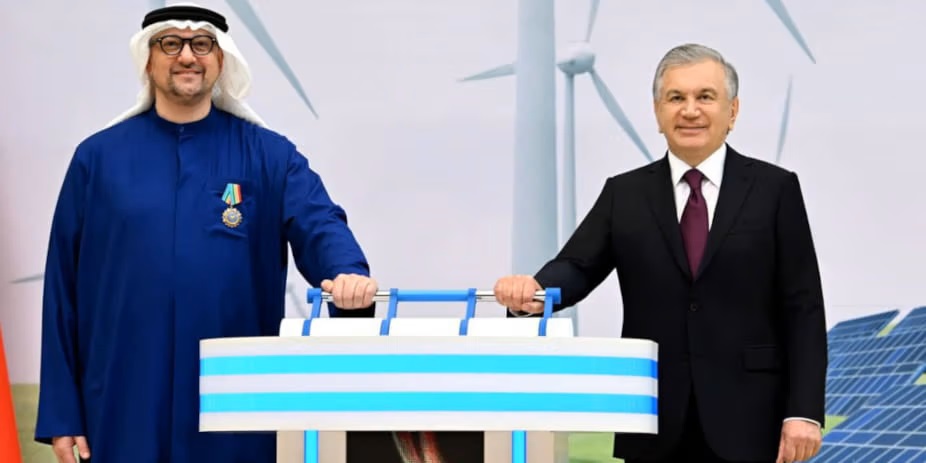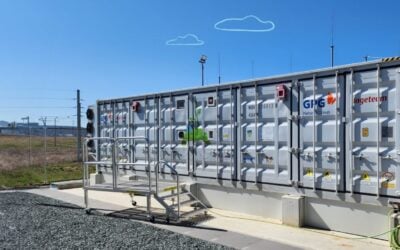
UAE-based renewable energy company Masdar has expanded the scale of an agreement with the government of Uzbekistan to develop battery energy storage systems (BESS).
A joint development agreement (JDA) was signed between the pair in May 2023 for 2GW of wind energy and 500MWh of battery storage, as reported by Energy-Storage.news at the time.
Enjoy 12 months of exclusive analysis
- Regular insight and analysis of the industry’s biggest developments
- In-depth interviews with the industry’s leading figures
- Annual digital subscription to the PV Tech Power journal
- Discounts on Solar Media’s portfolio of events, in-person and virtual
Under the terms of the latest update, the BESS development portfolio has been more than doubled to 1,150MWh. The systems would be deployed at five separate Masdar-developed large-scale renewable energy projects around the Central Asian Republic state: four solar PV plants and one wind plant.
The announcement made by Masdar on 28 December followed Uzbekistan’s president Shavkat Mirziyoyev’s attendance at a ceremony held the day before (pictured above) to connect 1.4GW of Masdar-developed solar PV and wind energy projects to the country’s grid.
At that event, Mirziyoyev highlighted the important relationship between the two countries – Masdar’s three main shareholders are Abu Dhabi state entities – and Masdar CEO Mohamed Jameel Al Ramahi described Uzbekistan as a “key strategic destination” for his company, having been the first to finance the country’s first independent power producer (IPP) solar project which it brought online in 2021.
Uzbekistan is one of the world’s biggest natural gas producing countries, and gas accounted for 90.5% of domestic energy generation in 2019, according to the International Energy Agency (IEA). Nearly all of its renewable energy generation to date has been from hydroelectric power, which accounted for just over 1% of the mix in 2019.
The country is targeting the deployment of 7GW of solar PV and 5GW of wind by 2030 and equivalent to 30% of energy demand, making Masdar a significant player in arriving at those goals. In late 2022 the company won a solicitation for Bukhara solar PV plant, which will feature a 126MWh BESS alongside 250MW of solar PV and in June 2023 was awarded the Guzar project, pairing 300MW solar with 75MWh of energy storage capacity.
Another Middle Eastern developer, Saudi Arabia’s ACWA Power, signed agreements to develop 1.2GW of energy storage in the country as well as 1.4GW of solar in March last year, while during a state visit to Uzbekistan by French president Emmanuel Macron, France-headquartered developer Voltalia signed agreements to progress a hybrid solar-wind-battery project with a 60MW/240MWh BESS as well as another battery storage project of undetermined sizing at a 100MW wind project.
Masdar emerged from the recent COP28 talks – of which the UAE held the presidency – with numerous clean energy development agreements and deals around the world, including 3.6GW in Uzbekistan’s neighbouring Kyrgyz Republic.
Our colleagues at PV Tech rounded up some of the biggest of those deals pertaining to solar PV that were announced as Emirati politician Sultan Ahmed Al Jaber, head of Masdar and Abu Dhabi National Oil Company (one of Masdar’s three shareholders), chaired the COP28 talks.






